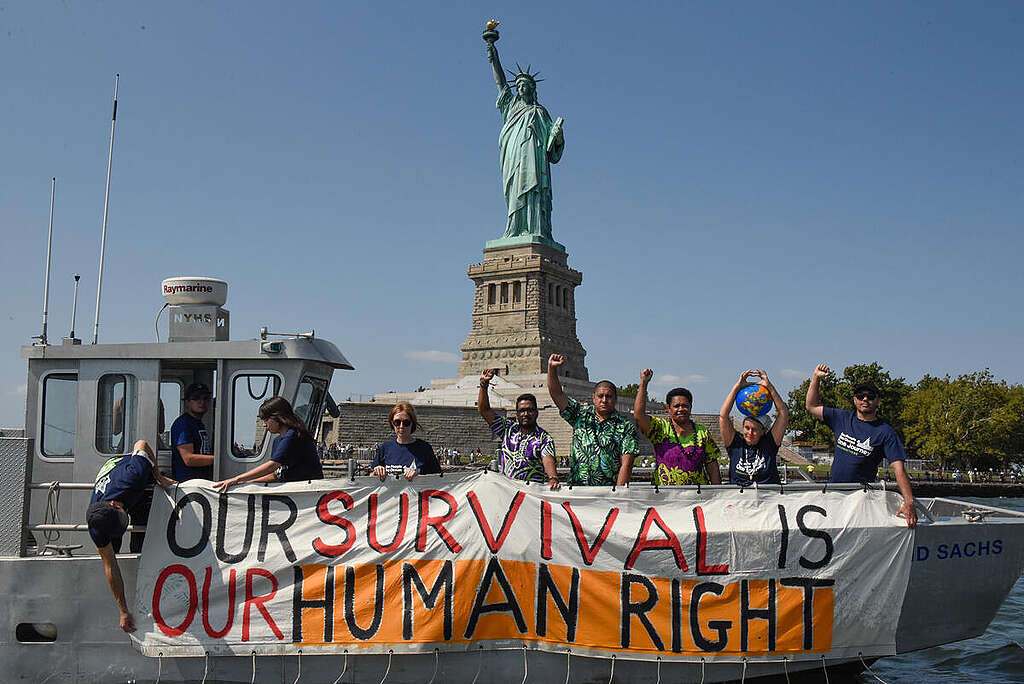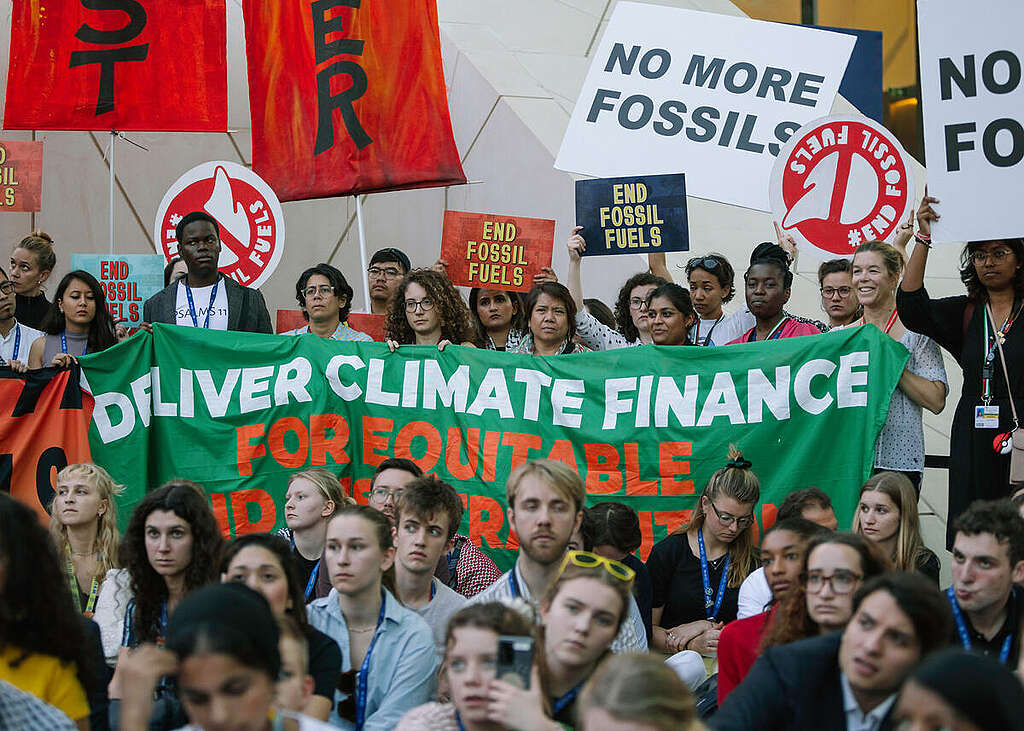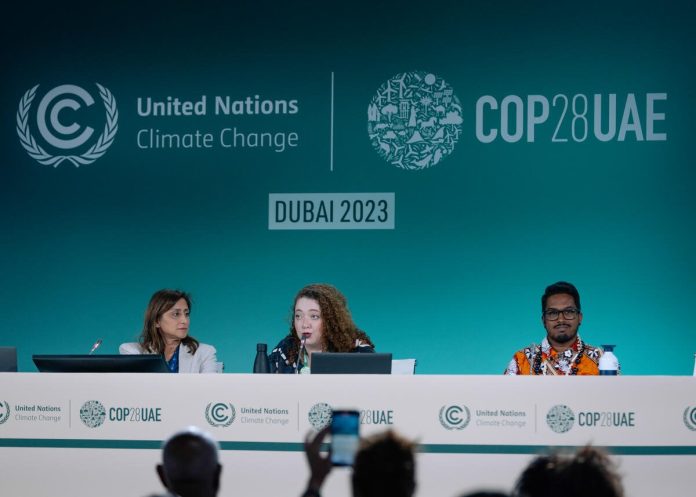Liberal Party leader Peter Dutton has called the prospect of co-hosting COP31 “madness,” Labor Energy Minister Chris Bowen has called it “a great opportunity.” But what even is COP31, and why is everyone talking about it? Let’s get into it.
What is COP31?
COP stands for “Conference of the Parties” and refers to the annual meetings where representatives from countries around the world gather to review and progress the United Nations Framework Convention on Climate Change (UNFCCC). Or in other words, where world leaders come together to assess global progress on tackling the climate crisis, and finding solutions to things like how countries can adapt to climate impacts.
The first COP was held in 1995. This year will be the thirtieth meeting, or COP30, and COP31 will take place in 2026. 198 countries have ratified the UNFCCC, and therefore attend the COP negotiations.
COP should be for the people, not fossil fuel corporations
The COP meetings aren’t only government negotiations behind closed doors. In 2023, over 83,000 people attended COP28 in Dubai. Activists, environmental groups, corporations and the media come from far and wide to participate in the events that take place around the negotiations or to protest outside.
It is because of the COP that we now have the Paris Agreement – a legally binding treaty adopted by 195 countries to work together to limit global temperature increase to well below 2C, ideally to 1.5C above pre-industrial levels. This near universal cooperation around a common goal of climate action is our best shot at avoiding the worst impacts of a warming planet.
There are many valid criticisms of the COP process – primarily the fact that far too little progress has been made towards avoiding catastrophic climate change. This is in part due to the growing presence of fossil fuel lobbyists at the COPs, with countries like Canada and the UK inviting polluters to attend as part of their official delegations. Last year, fossil fuel lobbyists received more badges for COP than all delegates from the 10 most climate-vulnerable countries combined.
Nevertheless, the UNFCCC is the largest and most significant platform for coordinating international action on climate. It’s essential that groups like Greenpeace are there to hold governments and fossil fuel corporations to account, and to push for the most ambitious action to limit global temperature increases.
Australia’s bid to co-host COP31 in partnership with the Pacific

An alliance of activists and organisations, including Pacific Islands Students Fighting Climate Change (PISFCC), Greenpeace Australia Pacific, and Amnesty International, joined by New York climate activists and Indigenous representatives, hold a Climate Justice flotilla sailing past the UN HQ and the Statue of Liberty with banners calling on countries to vote yes to the Vanuatu-led bid for an International Court of Justice (ICJ) Advisory Opinion on climate change at the UN General Assembly (UNGA).
The COP takes place in a different country each year, with hosting rights shared between different country groupings and decided by consensus. Australia has put forward a bid to co-host COP31 in partnership with the Pacific, but we won’t find out if this bid is successful until at least June of this year.
Although Australia and the Pacific are leading contenders for co-hosting, there are two factors making the final decision uncertain:
- Türkiye has also put in a bid to host COP31 and is sticking to it
- Australia’s Federal Election
It’s still anybody’s guess who will form government after the federal election, and Peter Dutton has made it clear that his party would withdraw the COP31 bid if the Coalition were to win. On the flip side, Prime Minister Albanese recently recommitted to hosting COP31 – announcing already that they would hold it in Adelaide if successful. Given Adelaide is not even on the Pacific Ocean, this is a bad start to a co-hosting partnership with the Pacific. More on that here.
Why is hosting a COP such a big deal?
COP31 represents a huge economic opportunity for Australia to supercharge the clean energy transition. It would also be the first time since COP26 in Glasgow that the climate summit would be held in a location that facilitates mass public participation outside the event. Typically a hallmark of the COP events, successive years of hosting in petrostates with repressive regimes have made it much harder to get involved.
Peter Dutton’s recent threat to withdraw the COP bid is not just another throwaway election comment – it is, in the words of our Head of Pacific, Shiva Gounden: “a betrayal of the Pacific, a region where climate change is not a future threat but a present and relentless crisis.”
“Any Australian government must understand that hosting COP31 is not optional – it is a moral responsibility. Turning away from this commitment is turning away from the Pacific’s future, from the families fighting to stay above water, and from the global effort to secure a livable planet for all.”
Pacific leaders have shared similar concerns, with the President of Palau recently putting the pressure back on the sitting Labor government and calling out the hypocrisy of Australia talking a big game on climate while continuing to approve new coal and gas projects.
Hosting COP31 would put the global spotlight on the fact that in spite of renewable energy progress at home, Australia is still the third largest exporter of fossil fuels in the world. And co-hosting with the Pacific would increase the pressure on Australia to listen to a core demand of Pacific countries and come up with a plan to phase out fossil fuels.
What we want to see at COP31

While COP31 matters a lot – first up is COP30 this year in Belem, Brazil. After a disappointing COP29 in Baku last year, our Head of Advocacy Susie Byers reflected:
“The Australian government, and all governments here in Baku, represent us and work for us, the community. We will not let them forget their obligations to the people — here in Baku, in Brazil next year, and if the conference comes home to Australia and the Pacific, in 2026. We will dust off, and we will regroup on the road to Belem to ensure that major polluters are held accountable, and that the voices and demands of the most climate-impacted nations are centred at COP30 and beyond.”
COP is far from perfect and after years of battling thousands of fossil fuel lobbyists and countries intent on maintaining the status quo, it is easy to lose hope. But as Shiva summed up perfectly: “Those on the frontlines do not have the luxury of losing hope — and so we will keep fighting.”
At Greenpeace Australia Pacific, we will continue advocating for the profit-hungry fossil fuel industry to pay for the climate destruction it has caused, for major emitting countries to contribute their fair share, and for Australia to commit to a pathway aligned with limiting warming to 1.5C – that means committing to a timeline for a fossil fuel phase out, starting with no more coal and gas approvals.
As for COP31, watch this space for updates. If the Australia-Pacific bid is successful, we’ve got a lot of work to do!




